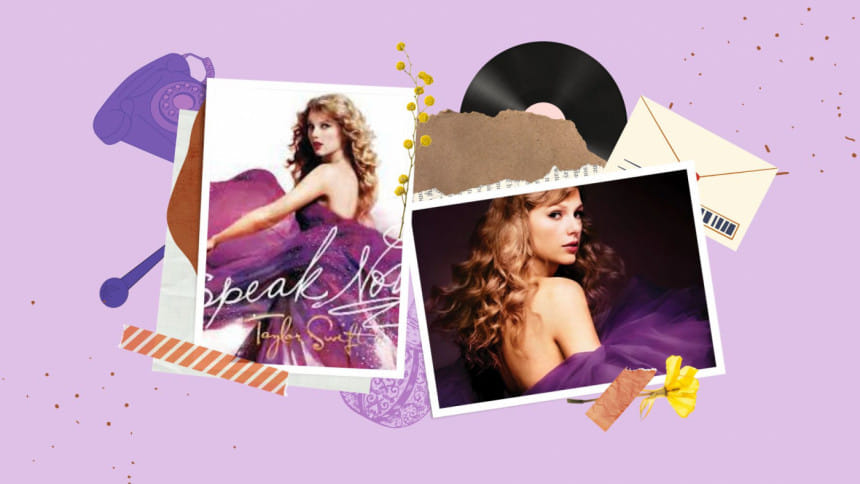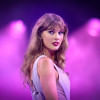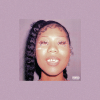Taylor Swift’s ‘Speak Now TV’: Witnessing the emotional journey of ‘girlhood’

On July 7, Taylor Swift's re-recorded album, "Speak Now (Taylor's Version)", was released worldwide and brought with a flurry of emotions for those who grew up in the early 2000s. My own introduction to the artiste's fandom was with the same album, back when it was released in 2010, under the Big Machine Records banner.
The album is entirely self-written and chronicles the journey of Swift's dealings with heartbreak, love and the rose-tinted emotions, from age 18 to 20. This album, in my opinion, set Swift on the precedented path of being the 'autobiographical musician' that she is today.
From calling out Musician John Mayer in the song "Dear John" to addressing the critics who said she couldn't 'sing' in the song "Mean", she has done it all. "Speak Now" was the album that talked about the growing pains of being a young and vulnerable woman on a platform, being taken advantage of or simply being unable to handle 'big feelings'. The songs from her album helped me get through the journey that she spoke about, put so simply and sung out in the likeness of 2000s rock and country rhythms, that soon became the soundtrack of my own adolescence.
"Speak Now (Taylor's Version)" contains the same 16 original tracks along with 6 more tracks from the vault. Now getting down to the nitty gritty parts of it, the older songs, sung now in Swift's older voice with much better control, do lose some of the magic of teenage angst. That isn't a bad thing per se, not to me at-least. I believe that signifies growth and a better grasp of one's emotion, that everything that felt monumental at one point, might not be such a big deal anymore. Seems like that's what Swift feels as well as she urged her fans not to take things 'personally and attack people whom the songs might be about', ahead of the album's release.
I do love that the production of the songs retained the same head-banging and louder percussion reminiscent of the early 2000s. That is what drove the songs home, while you thought of running away with an imaginary groom. Moreover, the 'From The Vault' tracks feature some of the prominent pop punk figures like Fall Out boy and Hayley Williams. The latter had been a long-time friend of Swift and collaborated on the song called "Castles Crumbling" which tells the tale of growing up and feeling like an imposter, questioning whether your friends will be there for you, which is a recurring theme in Swift's discography at this point.
As much as I find the idea of featuring one of your closest friends on a track about friendship very endearing, I wish we had the chance to witness Hayley's powerful vocals more. The 5-minute song features Hayley as a backing vocal, rather than headlining a chorus or her own verses. Hayley has one of the strongest belts among female vocals, which would have amazingly complimented the theme of the song. Similarly, Fall Out Boy known for their hard hitting punk sounds, sounded very mellow and unlike themselves, which is granted to happen when you are featured on a track that is not your own. However, as someone who has advocated for her sound and voice to be heard for so long, Swift could have made some creative changes to let her featured artistes shine through.
Lastly, when I opened the track list my mind instantly went to the song "Better Than Revenge", hoping that she had changed the controversial lyrics to fit with the times. Rumoured to be about Joe Jonas's then girlfriend Camilla Belle, whom Joe started dating immediately after breaking up with Swift, the lyrics had been long since been condemned by fans and critics alike. The lyrics, "She's better known for the things that she does on the mattress", had misogynistic undertones which Swift addressed herself and later changed the lyrics to--"He was a moth to the flame / She was holding the matches."
While many have protested the change, I welcomed it. It is a testament of Swift's understanding of internalised misogyny and her first ,albeit small step towards further understanding the inner workings of intersectional feminism.
In an overall sense, as a fan who has had the chance to experience the cultural paradigm the former album had caused, and now is indulging in the current one, I'd say, "Speak Now TV" carries the footprint of what girlhood was like in the early 2000s and how much we have progressed since then.

 For all latest news, follow The Daily Star's Google News channel.
For all latest news, follow The Daily Star's Google News channel. 









Comments